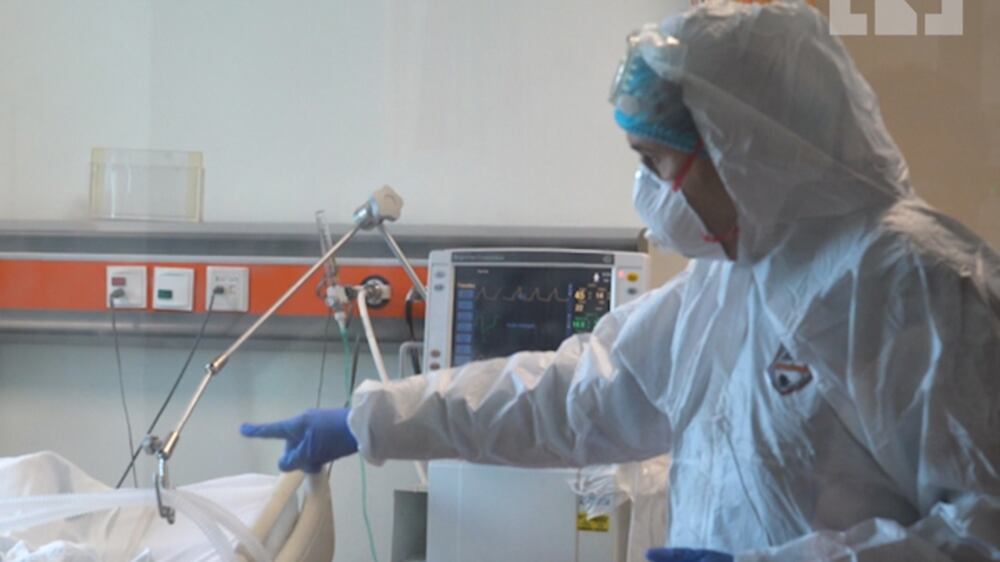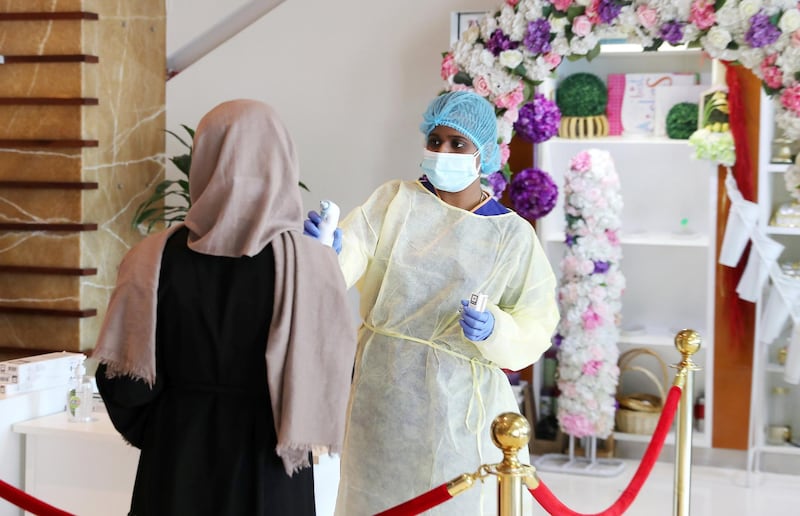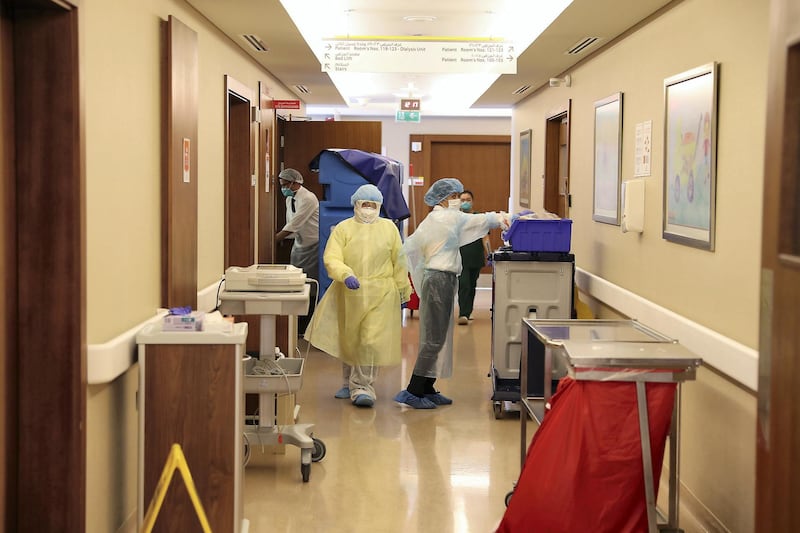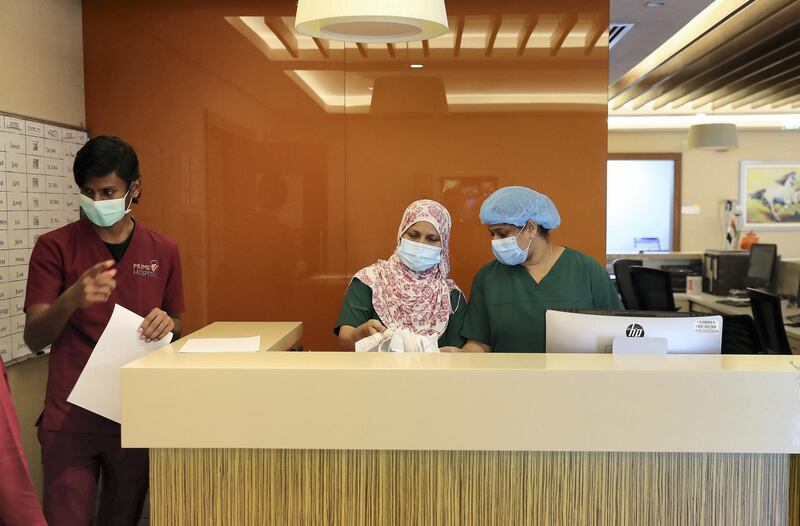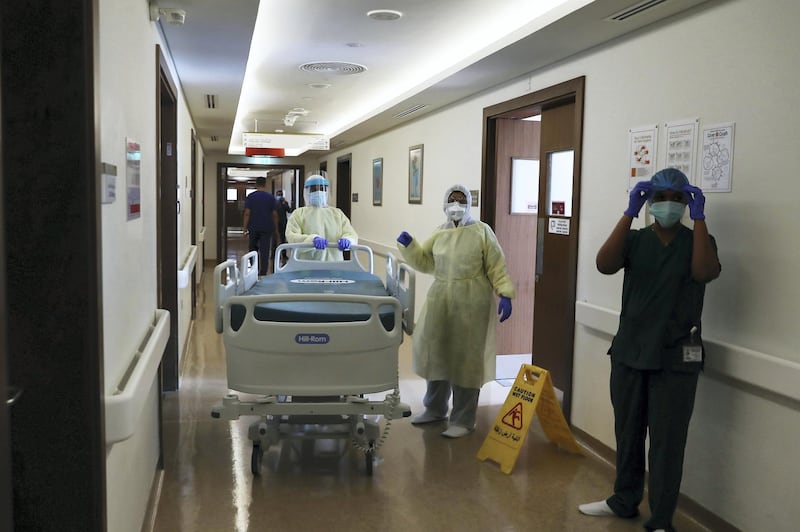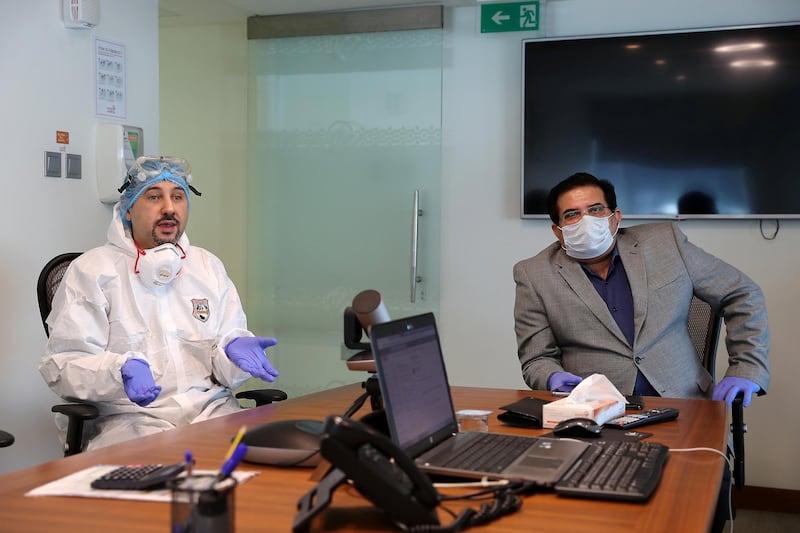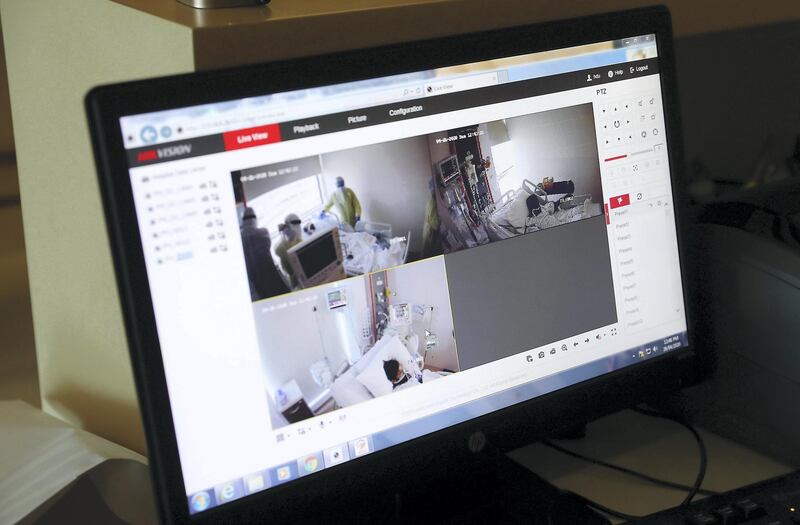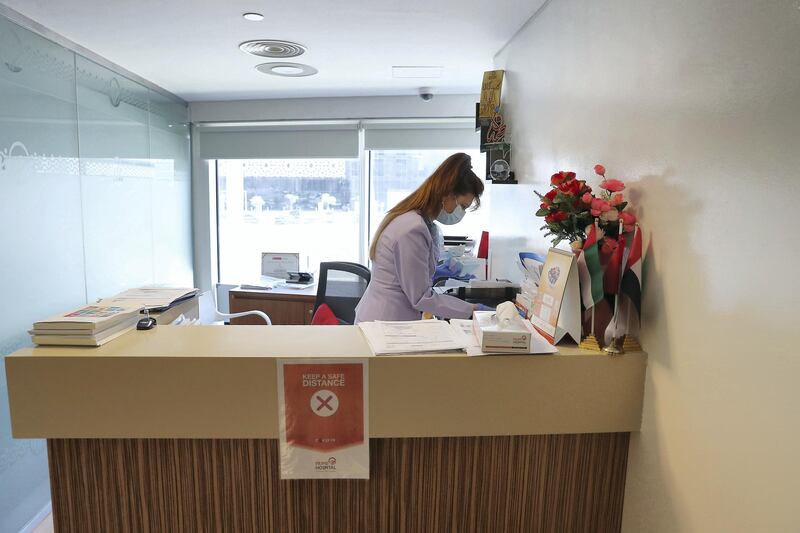Deep inside the isolation wards of Prime Hospital in Dubai, Covid-19 patients rushed in by ambulance are fighting for their lives.
It may be the early days of Ramadan, but there are no reduced working hours for medical teams holding up against the most dangerous pandemic of a generation.
Consultants, registrars and nurses continue to work around the clock at Prime, one of the nation’s many private hospitals that has taken up the fight against Covid-19.
Consultant Dr Dirar Abdullah, head of the hospital's intensive care unit, has received many patients since the hospital’s first case on March 15.
“These are tough times for all of us, but we are getting used to it and supporting each other,” he said.
“The nurses are doing a great job. We know it is challenging physically and emotionally for everyone.”
Patients unresponsive to the usual treatment for respiratory conditions are admitted to ICU and placed on ventilators to increase their oxygen supply.
They are isolated in their rooms for weeks at a time unable to see family until they have recovered.
“We take all precautions to protect ourselves as if we pick this up we know we will be unable to work for a month,” he said.
“No one wants a second wave of infections once we have seen the numbers fall so the isolation measures taken in Dubai are hugely important.”
Of the hospital’s 59 rooms, 24 are set aside for coronavirus patients, while four of the facility’s 10 intensive care beds are currently taken up by those with Covid-19.
Some walk-in patients are concerned about their symptoms, others arriving by ambulance are often in a more perilous state and need emergency care.
All are from the surrounding area of Garhoud.
Being close to the airport, the hospital has formed a partnership with Emirates airline to offer urgent care to cabin crew and passengers who arrived into the UAE from abroad before flights were grounded.
So far, 76 coronavirus patients have been admitted with 50 released after recovering and the others remaining as in-patients.
The hospital has been transformed since the beginning of the outbreak.
A three-bed stroke unit has been converted into a coronavirus isolation ward, as has a cardiac care unit.
The in-house Covid-19 task force is made up of a consultant, assistant registrar and four specially trained nurses, with two more on standby for busy periods.
The weekend was one of those times.
As patients struck down by the virus were wheeled through corridors into isolation units where they will spend the next two weeks at least, nurses continued to triage the steady stream of new arrivals.
Hospital director Shatrujeet Kumar Rai, from India, said he is receiving about six patients a week with the virus.
“When this outbreak started, we had just two isolation rooms,” he said.
“The way the numbers started to come in, we had to make a quick decision to adapt.
“It was not an easy thing to do.
“If you have an established building like ours, making changes to have more isolation rooms is challenging.”
Staff have had special training to deal with the specific situation they are facing.
They are not allowed to enter coronavirus treatment rooms unless decked out in complete protective equipment.
That includes surgical overalls, plastic hairnet, gloves and shoe cover. Most either wear an N95 mask and goggles, or a mask and plastic face shield.
Despite that protection the fear of picking up the virus stalks each and every medic during their daily rounds.
“Although some of our staff have had coronavirus, we are confident they did not pick it up here during their work,” he said.
“Infection control is vital to what we are trying to do here.”
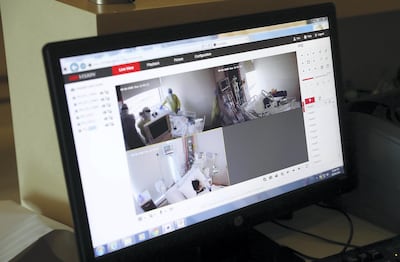
Egyptian Dr Adel Alsisi, the chief medical officer, said staff must change their protective equipment after each contact with a Covid-19 patient.
“In the first few days there was a lot of panic, we did not know how we should be fully protecting ourselves or how to give the best treatment,” he said.
“Like all my colleagues, my aim is to help others but it became clear very early we could only do this if we kept safe.
“I have worked during similar outbreaks like Mers and Sars but this is very different.
“We have learned that getting accurate information on the patient when they arrive is very important.”
Mariana Siritanu, nursing director, is one of those working all hours of the day from home and at the hospital to co-ordinate the facility’s response.
“We are prepared in advance and a patient will only be brought in to us if we have the space and necessary equipment available for the patient’s needs,” she said.
“Once I get a call I check we can take the patient in and then coordinate with the ward supervisor.”
Ms Siritanu, from Romania, is on call all day every day and rarely sleeps before 2am with her next shift looming at 7am.
“We never stop and do not get much time for sleep,” she said.
“At the beginning there was a lot of panic as it was a new virus and we did not know how the patients would respond to treatment.
“Now we are seeing more positive outcomes and discharges so that has increased the morale of our staff.”
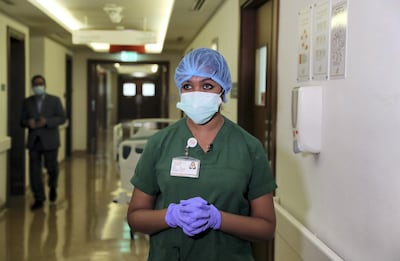
Senior nurse Jemy Joseph said the mental challenge is almost as great as the long shifts wearing uncomfortable protective equipment.
“It is so stressful, emotionally and physically especially when I go home to my family,” she said.
Ms Joseph has two young children, aged four and seven months, and a husband.
As soon as she goes home she changes her clothes and showers before having any contact with her family.
“We know we are exposed to the virus so we must take all necessary steps to protect them,” she said.
“There is hope as we see any patients improve. Even those who are on ventilators are getting better after 14 days or so.
“This is the biggest challenge I have faced as a nurse.
“When I go home I try to forget about work and hope this will pass, then everything will be fine.”
